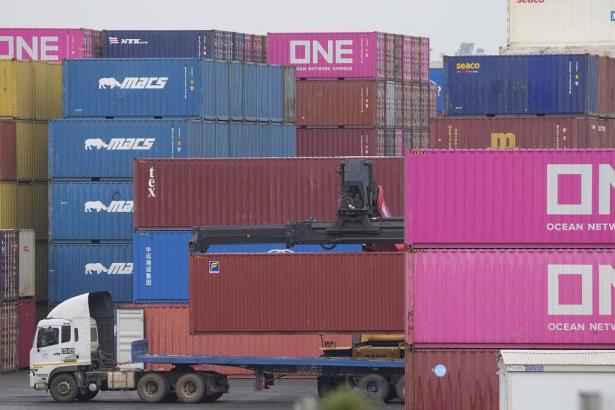Well, we won’t be played for suckers by Laos and Liechtenstein anymore. That’s a load off my mind.
As of Tuesday, Laotian imports will come complete with a 48 percent tariff; as for Liechtenstein, it’ll only be 37 percent.
What, you may wonder, did Laos and Liechtenstein do to cause the drop in domestic production here in the United States, and to build a world economy based on global capital’s free trade? Are they major producers of governmentally subsidized imports to our shores? Did they play a key role in building the World Trade Organization? Did they lobby our Congress to pass NAFTA and permanent normal trade relations with China? Did they make under-the-table payoffs to the board members at Apple to relocate a chunk of its Chinese production to other Southeast Asian nations once Chinese wages had risen well above those in its less-developed neighbors?
Actually, no.
It wasn’t largesse from Laos or lobbying from Liechtenstein (which didn’t even have an embassy in the U.S. until 2002, years after both those trade deals had become law) that prompted Congress to enact those devastating deals. To be sure, Laos did export $36 million worth of leather footwear and $32 million worth of knitted hats to our shores in 2023. For its part, Liechtenstein, though home to just 40,000 people, is a major exporter of dentist’s implements.
So, who did create this nefarious world order? Where do we find the prime movers of those policy decisions so injurious to America’s working and middle classes? Why, on Wall Street and our corporate C-suites, of course. Once Ronald Reagan cut taxes on the rich to a level where big-time investors realized they could amass huge wealth from shareholding, the New Deal social contract, which had dealt workers in to rising American prosperity, was unceremoniously scrapped (though, come to think of it, there were presidential signing ceremonies for the tax cuts and the trade deals). So began a much more intense war on unions, a much greater flight to low-wage nations, and much higher CEO pay, most of it coming from the shares they were given. So ended any sentimental loyalty that Wall Street and the CEOs may have extended to American workers; indeed, the model American CEO of the last two decades of the 20th century was General Electric’s Jack Welch, who famously said he’d prefer a system where you’d have “every plant you own on a barge” that could float to whichever country had the lowest wages and taxes at any particular time. It was Welch and his peers who are responsible for creating that “barge economy,” and whose campaign contributions and lobbying pushed NAFTA and PNTR with China through Congress.
But Trump has a special remedy picked out for these great-wealth malefactors, too. He is proposing to give them tax cuts in excess of $4 trillion.
That’ll show ’em.
Trump argues there’s a synergy between his tariffs and his tax cuts: The former will bring revenues to the government that will pay for the latter. There is, in fact, a synergy between them, but that isn’t it. The synergy is that most of the tariffs—particularly those on obscure, small developing nations, or, as Trump once termed them, “shithole” nations—create a target for American anger that thereby holds Trump’s fellow billionaires harmless. That’s the synergy at the heart of Trumponomics.
Harold Meyerson is editor at large of The American Prospect.
The American Prospect is devoted to promoting informed discussion on public policy from a progressive perspective. In print and online, the Prospect brings a narrative, journalistic approach to complex issues, addressing the policy alternatives and the politics necessary to create good legislation. We help to dispel myths, challenge conventional wisdom, and expand the dialogue.
Founded by Robert Kuttner, Paul Starr, and Robert Reich, read the original 1989 prospectus for the magazine.
To learn more about our history, check out this 2015 piece by Starr and Kuttner, reflecting on 25 years of politics and change.
American Prospect, Inc., is a 501(c)(3) nonprofit corporation headquartered in Washington, D.C.
You can support our mission with a subscription or a tax-deductible donation.


Spread the word